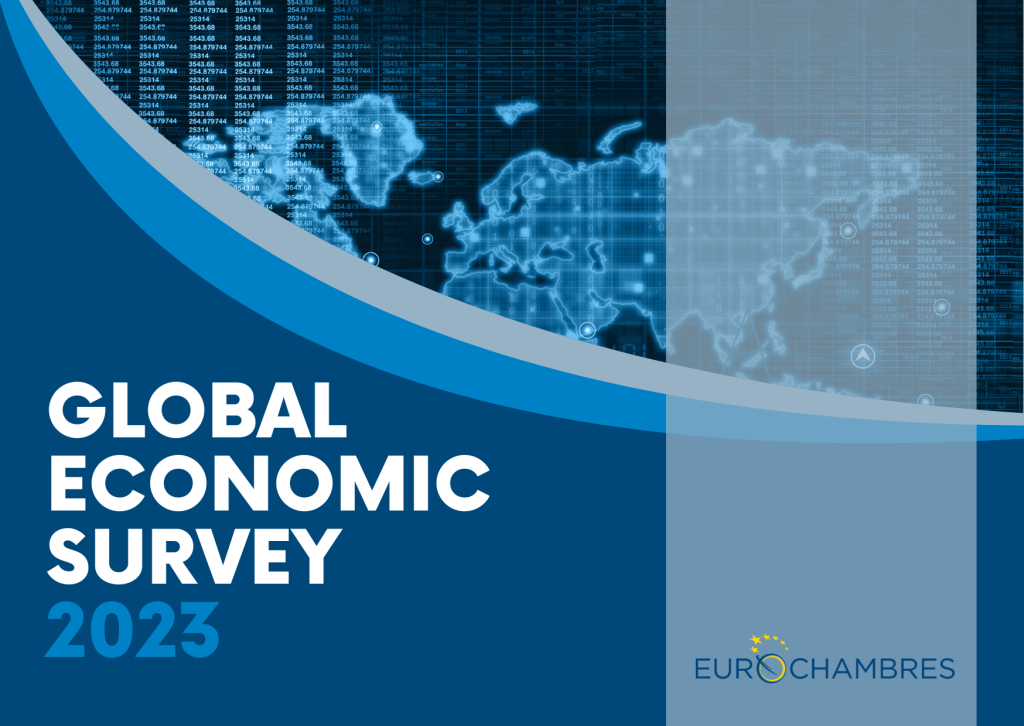Global Economic Survey 2023 (GES2023) – Report
The 2023 Eurochambres Global Economic Survey (GES2023) was conducted during November and December 2022. The survey provides a qualitative assessment for the year ahead of global economic developments, trade and other key policy challenges from a business perspective based on responses from business organisations in countries accounting for around 70% of total world GDP.
Macroeconomic outlook: The slowdown of global economic activity caused by the outbreak of the war in Ukraine, the resulting distortions on energy markets, as well as the lingering impacts of the Covid-19 pandemic, lead the international business community to predict once more a challenging year ahead.
The latest International Monetary Fund (IMF) forecasts for real gross domestic product (GDP) in 2023 were overall much lower than those for 2022, and the deceleration of economic growth is reflected in the participants’ expectations for their own country or region for 2023. These forecasts highlight the important challenges that global businesses continue to face, as, according to the IMF, more than a third of the global economy has contracted in 2022 and is expected to further do so in 2023. A notable deceleration in growth this year is also expected for the US, with the United States Chamber of Commerce seeing growth levels lower than those predicted by the IMF, reaching 0,5% in 2023. Equally, a more pessimistic outlook is expressed for Brazil by the National Confederation of Trade in Goods, Services and Tourism - Brazil with a 0,5% growth, as well as a slight downward projection by the Korea Chamber of Commerce and Industry to 1,8% and the British Chambers of Commerce significantly downgrading UK forecasts to a -1,3% contraction for 2023. The Eurochambres estimate closely follows the IMF estimate for the Euro Area, which has been displaying a decreasing trend since 2021.
Conversely, according to the participants, other countries are finding different ways to relaunch their economies in an overall challenging global outlook for 2023 and register greater optimism than the IMF predictions. This is the case for China, where the loosening of COVID-19 restrictions may contribute to the slightly more optimistic outlook by the China Council for the Promotion of International Trade, predicting 5% growth for China for the year ahead, as well as for Türkiye, where the Union of Chambers and Commodity Exchanges of Türkiye revises 2023 growth expectations upwards by one and a half percentage points to 4,5% compared to the IMF benchmark.
Reflecting this challenging macroeconomic context, most participants in GES2023 expect a drop in business confidence for their country/region in 2023, with only the Gulf region and China indicating greater business confidence.
The overall top challenge for the global economy in 2023 has been identified as prolonged geopolitical tensions or instability. The other top challenges are rising inflation levels caused by soaring food and energy prices, especially highlighted by participants from the US and the UK, as well as a further tightening of global financial conditions. Energy security also appears as an important overall challenge for 2023, most strikingly for the EU.
